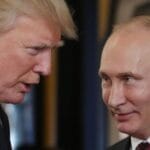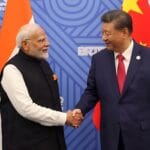Kazan, Russia: India’s PM Narendra Modi should have well-articulated his feelings in the recently concluded BRICS Summit as he declared that India believes in the” weaponry of peace and diplomacy” over conflict. Speaking in a closed-door session, he acknowledged that the issues before the world today cannot be solved alone.
In his address, Modi said it would be apt time to compliment Russian President Vladimir Putin for hosting this summit in Kazan and the leadership of BRICS under his guidance over the last year. He urged us to recognize the challenges before the nations, especially from the background when a war is going on in Ukraine.
Prime Minister Modi again reiterated the core point he already made to Putin, All the conflicts can be solved through dialogue, with an emphasis on all the problems not only the BRICS countries are facing but that the world at large is facing. “We are coming at a time when the world is facing several issues that require immediate attention,” he said, pointing out economic concerns like inflation, food security, and energy stability. He also pointed to emerging technological challenges, such as misinformation and cyber fraud.
ALSO READ | Is BRICS Just a Symbol Until China and India Start Working Together?
“I believe that BRICS, as a diverse and inclusive group, has the potential to play a very vital role in tackling these issues,” Modi said. He asked for a people-centered approach and urged member countries to project BRICS more as a unifying force, where the dialectics of warfare are supplanted by those of dialogue and diplomacy.
Reflecting on the pandemic, the prime minister referred to how the BRICS nations have joined hands to overcome the COVID-19 crisis. He also expressed his confidence that they can make the future secure and prosperous, just as they together successfully battled the pandemic.
Terrorism combating and its financing was the focal point of Modi’s speech. He mentioned that there is a need for all-round efforts against terrorism and the financing of the same: “We need the unwavering support of all nations in this regard.” He blamed the double standards being followed in dealing with terror and called for collective steps to prevent the radicalization of youth among member countries.
Besides these immediate issues, Modi spoke on reforms in international institutes like the United Nations Security Council (UNSC). “It’s time we push forward with necessary reforms,” Modi said, addressing the BRICS member countries to work more into the transformation of the existing structure rather than trying to replace them.
The Prime Minister also welcomed the inclusion of “partner countries” like Egypt, Iran, Ethiopia, and the United Arab Emirates in the BRICS framework. As part of the expanded family meeting for the first time, he welcomed the participation of other partner countries and underlined the need for all decisions to be made by consensus and strictly on the principles laid down at the Johannesburg Summit.
Finally, Modi underlined the fact that there is a “special and privileged strategic partnership” between India and Russia, meaning deep historical bonds and mutual cooperation between the two countries.
Russia says the summit marks a diplomatic triumph over attempts by the West to isolate it over the Ukraine conflict. The US, meanwhile, continues to view BRICS as a geopolitical rival and still bristles at the expansion of its diplomatic outreach in the face of Russia’s third year of war.
I feel that the ground on which PM Modi focuses on dialogue and diplomacy is extremely important in the world of complexity today. Such a focus by BRICS in cooperative forms will lead to more wholesome solutions for those burning issues. However, it remains to be seen whether all these member nations could align their interests. It will be a balancing act, but with the right approach, BRICS will make a difference in this world.
Minutes by M31GlobalNews






